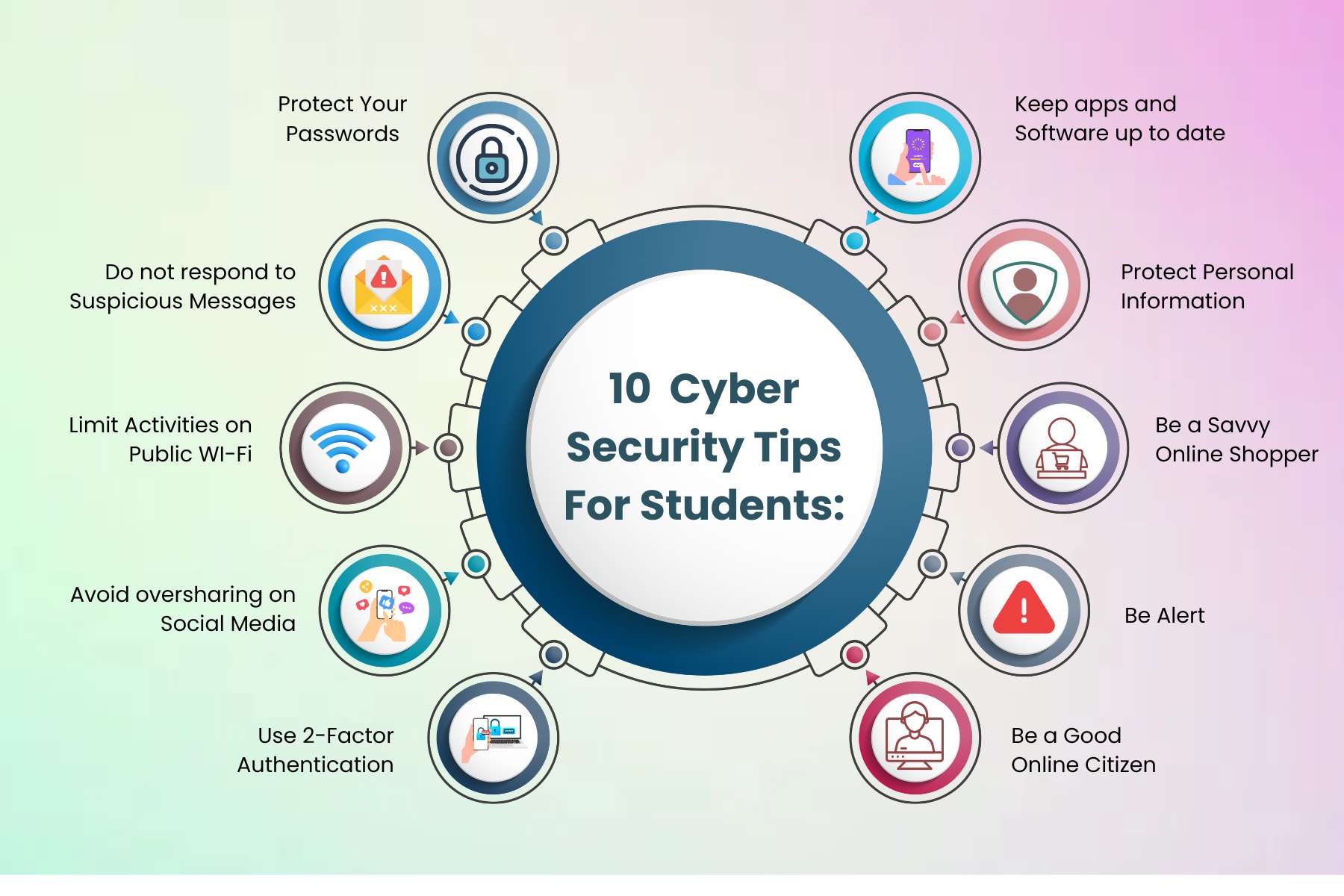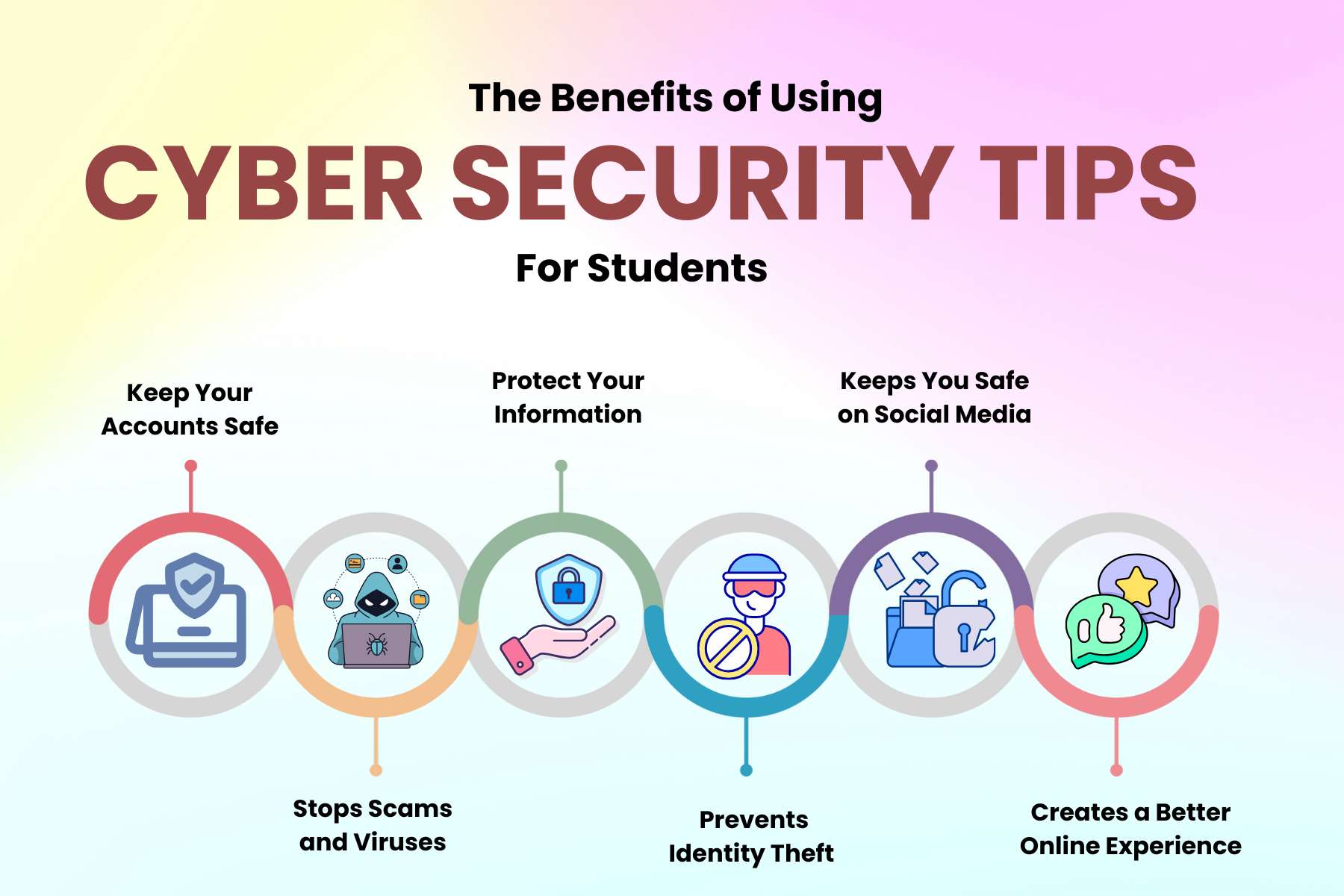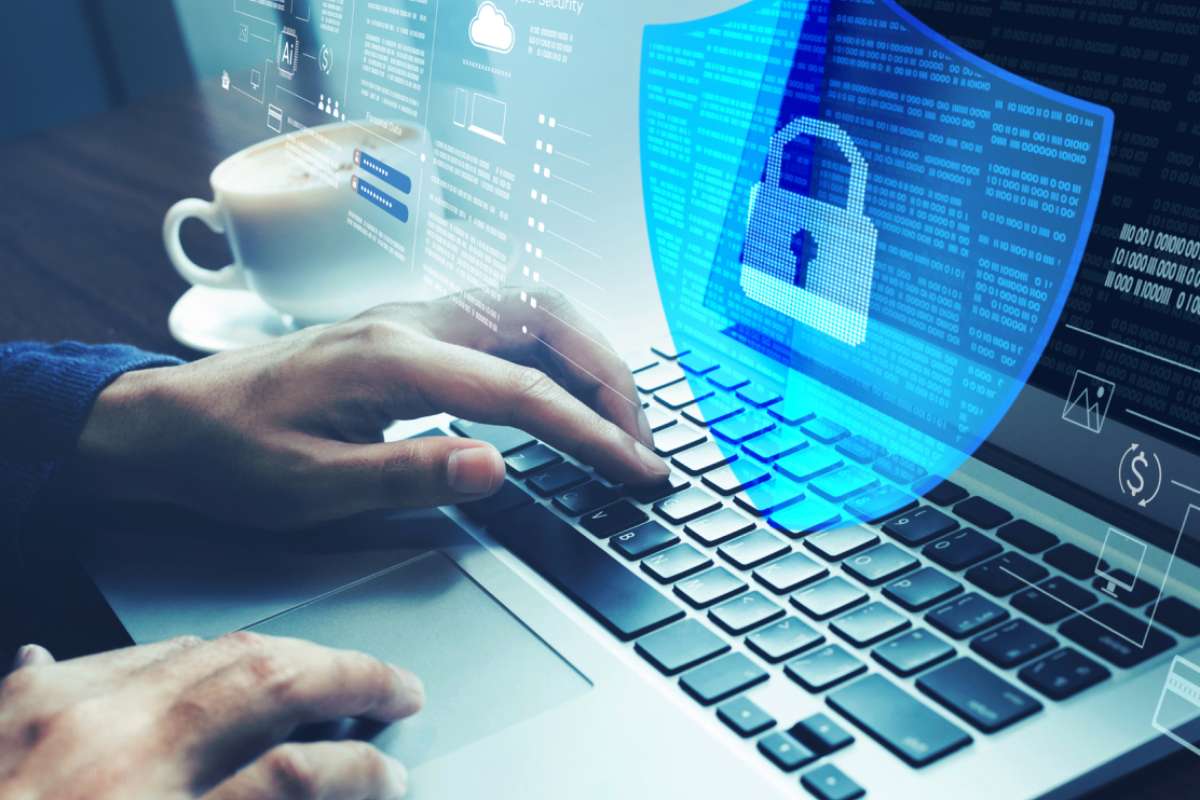I was excited when I received an email about a part-time job offer. The message looked official, with the company’s logo and a promising salary. All I had to do was click on the link, fill in personal details, and wait for further instructions. But after entering my personal information, I never heard back. Instead, My bank account was drained. I realized too late that I had fallen for a job offer scam. This experience shows how easily students can be tricked online. Let’s explore essential cyber security tips for students to help protect students from such scams.
What is Cyber Security?
Cyber Security protects Computers, Photos, and Online Data from hackers, viruses, and other threats. It keeps your personal information, like passwords and bank details safe from cybercriminals. Like locking your house keeps stalkers out, cyber security helps protect your digital life. Without this, your data could be stolen, hacked, or even deleted. By following simple cybersecurity steps, you can stay safe when browsing, studying, or socializing online. Stay aware and protect your personal information from the digital world.
Why is Cyber Security Important?
Cyber Security is important because it keeps personal data, money, and online activities safe from hackers. Students use the internet for studying, social media for entertainment, and online banking, which makes them easy targets for Cybercriminals. Without security, their data can be stolen, sold, or misused. Cyber attacks like fake mail, viruses, and identity attacks can cause serious issues, like losing money or having private information leaked. Following some simple rules can protect themselves online and avoid scams. Staying safe and secure on the internet is as important as staying safe in real life.
10 Cyber Security Tips For Students:

1. Protect Your Passwords:
Use strong and unique passwords for each account and never share your password with anyone. Use a password manager to keep track of them. Strong passwords help protect your personal information.
2. Do not respond to Suspicious Messages:
Ignore emails, and messages from unknown senders who ask for personal information. Hackers often pretend to be banks, schools, or companies to steal your information. Avoid clicking on links or downloading attachments from suspicious messages. Verify the sender before responding. Stay alert and protect your data.
3. Limit Activities on Public Wi-Fi:
Avoid banking or logging into important accounts on public networks. Because it’s not always secure. Hackers can easily access your data on unsecured connections. If you need to use public Wi-Fi, consider using a VPN to add extra protection.
4. Avoid oversharing on Social Media:
Sharing too much on social media can be dangerous and it can put you at risk. Don’t share personal details like your location, school, or daily routines. Hackers and strangers can use this information to target you. Be alert of what you share, and keep your privacy settings tight to stay safe online.
5. Use 2-Factor Authentication:
Add extra security to protect your accounts from hackers. Use Two-factor authentication (2FA) to secure your accounts. Instead of just using a password, you also need a second verification, like a code sent to your phone. This makes it much harder for hackers to access your account, even if they know your password.
6. Keep apps and Software up to date:
Install updates to fix security bugs and stay protected. Keeping apps and software up to date is important for your online safety. This simple step helps protect your devices from cyber threats.
7. Protect Personal Information:

Be careful where you enter sensitive details online. Never share sensitive details like your address, phone number, or financial information. Be careful with what you post on social media, because hackers can use this information to steal your identity and hack your accounts.
8. Be a Savvy Online Shopper:
Being a savvy online shopper means making smart choices to protect your personal or financial information. Always shop on trusted websites with secure payment methods, and avoid deals that seem too good to be true. Read reviews before buying.
9. Be Alert:
Think before clicking any links or downloading anything online. Always double-check before clicking on anything and think twice before sharing personal information. Trust your gut feelings and avoid interacting with anything that seems untrustworthy.
10. Be a Good Online Citizen:
Being a good online citizen means treating others with respect and kindness on the internet. Avoid spreading false information, or engaging in harmful behavior. Be mindful of what you post and share. A positive attitude can help create a safer, more respectful online community.
The Benefits of Using Cyber Security Tips for Students

1. Keep Your Accounts Safe –
Strong passwords and two-factor authentication help protect your accounts from hackers.
2. Stops Scams and Viruses –
Ignoring suspicious messages and updating your apps can help you avoid scams and harmful software.
3. Protect Your Information –
Being careful on public Wi-Fi and not oversharing online helps keep your private information safe.
4. Prevents Identity Theft –
Avoiding fake websites and shopping safely online can protect you from losing money or being scammed.
5. Keeps You Safe on Social Media –
Sharing less personal information helps prevent cyberstalking and online harassment.
6. Creates a Better Online Experience –
Being careful and responsible online makes the internet a safer place for you and others.
Conclusion
These cyber security tips for students can help you stay safe in this digital world. By following some simple tips, like using strong passwords, avoiding suspicious links, and keeping software updated, they can protect all their information.Cyber Security Tips For Students theses Small steps can make a big difference in staying safe. With the right guidance and habits, students can enjoy the internet safely without worrying about hackers or fraud.






